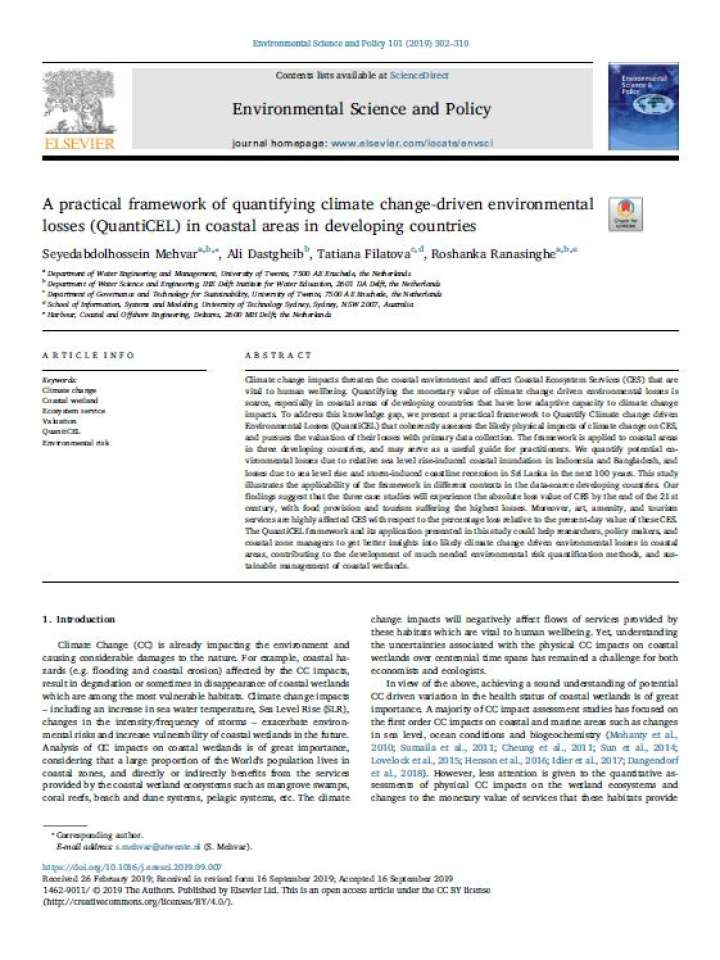A practical framework of quantifying climate change-driven environmental losses (QuantiCEL) in coastal areas in developing countries
The authors present a practical framework to Quantify Climate change driven Environmental Losses (QuantiCEL) that coherently assesses the likely physical impacts of climate change on CES, and pursues the valuation of their losses with primary data collection. Quantifying the monetary value of climate change driven environmental losses is scarce, especially in coastal areas of developing countries that have low adaptive capacity to climate change impacts. The framework is applied to coastal areas in three developing countries, and may serve as a useful guide for practitioners.
The authors quantify potential environmental losses due to relative sea level rise-induced coastal inundation in Indonesia and Bangladesh, and losses due to sea level rise and storm-induced coastline recession in Sri Lanka in the next 100 years. This study illustrates the applicability of the framework in different contexts in the data-scarce developing countries. The findings suggest that the three case studies will experience the absolute loss value of CES by the end of the 21 st century, with food provision and tourism suffering the highest losses. Moreover, art, amenity, and tourism services are highly affected CES with respect to the percentage loss relative to the present-day value of these CES.
Explore further
